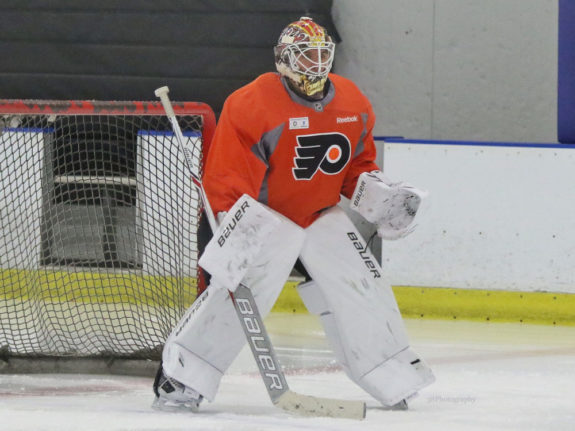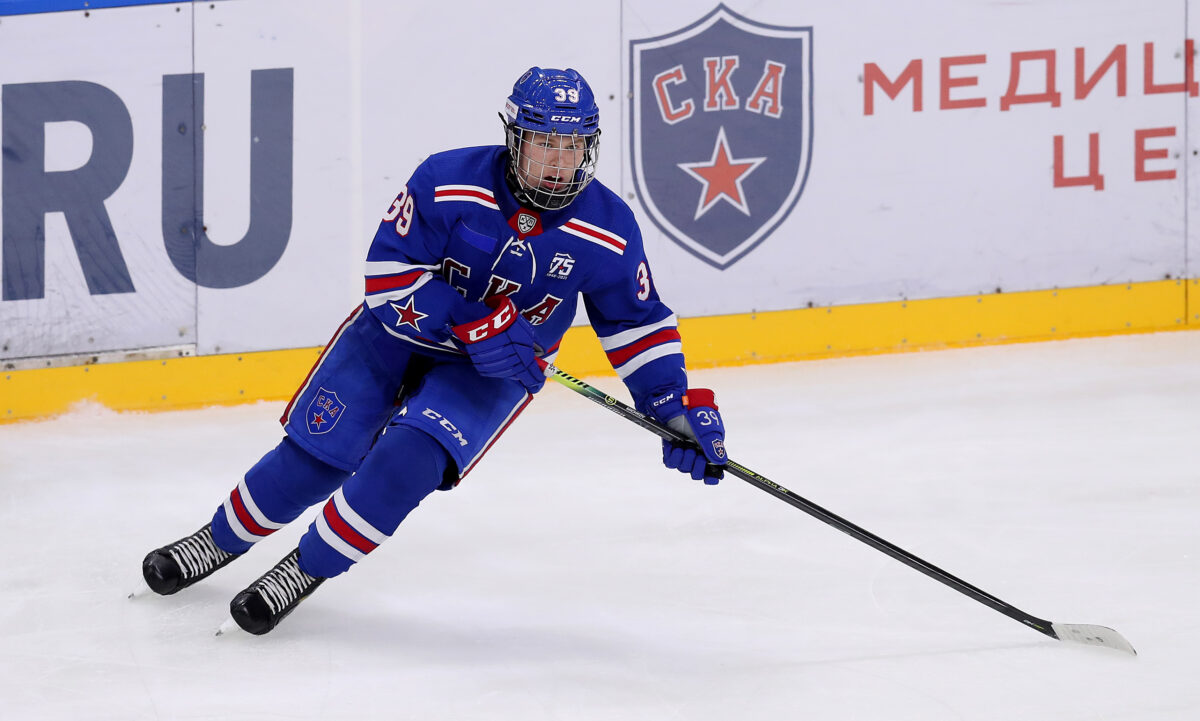Sports often serve as an escape from the more unpleasant aspects of everyday life, but that does not spare them from the depressing and bizarre effects of war. Hockey is no exception, and the decades-long relationship between Russia and the NHL makes that country’s invasion of Ukraine uniquely challenging for the sport. After Russia escalated its longstanding violations of Ukrainian sovereignty into open war, Alexander Ovechkin had to field questions on the geopolitical landscape of Eastern Europe, international host countries told the Nashville Predators and San Jose Sharks to leave their Russian players at home, and the International Ice Hockey Federation (IIHF) barred the nation from future competitions indefinitely.
If all of this sounds like fist-waving posturing, that’s because it is. Russian athletes are not the ones invading Ukraine, and no matter how good Nikita Kucherov is at hockey, keeping him off of the international stage will never be enough to convince de facto dictator Vladimir Putin to change course. Are the players expected to stand up to Putin after he had his only relevant political rival poisoned and, upon his survival, imprisoned for decades? The IIHF failed to appreciate that by banning Russia from its events, it used all of its leverage over the country in one fell swoop. Nonetheless, it suspended goaltender Ivan Fedotov from play until January for refusing to honor his contract with the Philadelphia Flyers.
The Flyers’ Failed Fedotov Approach
Fedotov, you’ll recall, had his North American career put on hold when Russian authorities sent the player to military prison and summarily conscripted him into the Russian Navy last summer. The 2020 Olympic silver medalist and former Gagarin Cup champion thought better of leaving the country again; he re-signed with CSKA Moscow this offseason, effectively quashing any chance he would ever suit up for the Orange and Black. The problem? The bizarre circumstances around the goaltender’s inability to appear for the Flyers led the IIHF to rule that his initial NHL contract applied to the 2023-24 campaign. Since Fedotov was breaching that contract by returning to CSKA, they suspended him for four months. The team called their bluff and started the 6-foot-7 netminder in its opening game. With Russian hockey already sanctioned to oblivion, what recourse did the IIHF have? Double-secret probation?

After Fedotov dressed for CSKA’s first game, the IIHF issued the Russian Hockey Federation (RHF) a fine and threatened further action should the goalie continue to suit up despite his suspension. They shouldn’t hold their breath waiting for the fine to be paid: now that the president of the KHL said that Fedotov’s suspension “infringes the constitutional right of a citizen of the Russian Federation to work” in a joint statement with CSKA, the Moscow club is infinitely less likely to recognize any further action from the IIHF.
Do the Flyers Have Reason to Worry About Matvei Michkov?
The Flyers and GM Daniel Briere are beyond caring whether Fedotov comes stateside. Cal Peterson and Samuel Ersson would each be capable backups for top goalie Carter Hart, and Alexei Kolosov’s recently signed entry-level contract gives them a logjam in the crease, which is a good problem to have. Briere will be more worried about how far the staring contest between the KHL and IIHF will go. Prized prospect Matvei Michkov will play in the KHL for at least another three seasons, and there is cause for concern that the league’s relationship with the outside world will crumble in the meantime.
Related: 3 Flyers Backup Goalie Candidates
CSKA’s decision to ignore the IIHF makes sense from a sporting standpoint. They have no reason to fear punishment from an international sanctioning body that has essentially given its home country a sporting death penalty pending the war’s end. They are setting a dangerous precedent, though, and the bolder the KHL becomes in its defiance of the IIHF, the more the NHL has to hold its breath. Briere is just one of dozens of GMs with talent stashed away in the world’s most volatile superpower; if the KHL graduates into a full-on outlaw league, the rookie GM will have to scramble to ensure Michkov comes to America as soon as possible.
Though Russia is the native home of countless current and future hockey superstars, there is no world in which the NHL maintains its ties to that nation, already strained by the latter’s Fedotov shenanigans, at the cost of its relationship with the whole of Scandinavia and unoccupied Eastern Europe. If the IIHF keeps slapping the KHL on the wrist only for the latter to shrug them off, choosing sides between the two could become necessary for the NHL. Briere would dread nothing more.

Scouts and experts hail Michkov as a superstar in the making, and only concerns over his KHL commitments and Russian heritage allowed the Flyers to draft him as low as seventh overall in the first place. Their agreement with another Russian, Fedotov, could prove those fears were well-founded. While Michkov is just one of many KHLers who stands to suffer from the league’s toxic relationship with the world community, along with the Belarusian Kolosov and fellow first-rounders like Dmitry Simashev and Daniil But of the Arizona Coyotes, the loss of the 18-year-old sniper would be particularly cruel. The Flyers have had bad luck in the past, but losing a generational talent to the fallout of another country’s war of aggression would take their misfortunes to the next level.
